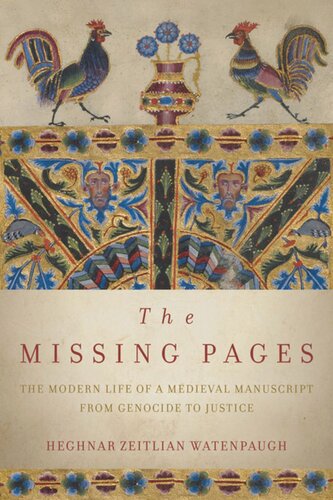

Most ebook files are in PDF format, so you can easily read them using various software such as Foxit Reader or directly on the Google Chrome browser.
Some ebook files are released by publishers in other formats such as .awz, .mobi, .epub, .fb2, etc. You may need to install specific software to read these formats on mobile/PC, such as Calibre.
Please read the tutorial at this link: https://ebookbell.com/faq
We offer FREE conversion to the popular formats you request; however, this may take some time. Therefore, right after payment, please email us, and we will try to provide the service as quickly as possible.
For some exceptional file formats or broken links (if any), please refrain from opening any disputes. Instead, email us first, and we will try to assist within a maximum of 6 hours.
EbookBell Team

4.8
74 reviewsIn 2010, the world's wealthiest art institution, the J. Paul Getty Museum, found itself confronted by a century-old genocide. The Armenian Church was suing for the return of eight pages from the Zeytun Gospels, a manuscript illuminated by the greatest medieval Armenian artist, Toros Roslin. Protected for centuries in a remote church, the holy manuscript had followed the waves of displaced people exterminated during the Armenian genocide. Passed from hand to hand, caught in the confusion and brutality of the First World War, it was cleaved in two. Decades later, the manuscript found its way to the Republic of Armenia, while its missing eight pages came to the Getty.
The Missing Pages is the biography of a manuscript that is at once art, sacred object, and cultural heritage. Its tale mirrors the story of its scattered community as Armenians have struggled to redefine themselves after genocide and in the absence of a homeland. Heghnar Zeitlian Watenpaugh follows in the manuscript's footsteps through seven centuries, from medieval Armenia to the killing fields of 1915 Anatolia, the refugee camps of Aleppo, Ellis Island, and Soviet Armenia, and ultimately to a Los Angeles courtroom.
Reconstructing the path of the pages, Watenpaugh uncovers the rich tapestry of an extraordinary artwork and the people touched by it. At once a story of genocide and survival, of unimaginable loss and resilience, The Missing Pages captures the human costs of war and persuasively makes the case for a human right to art.